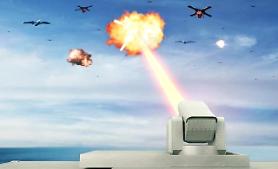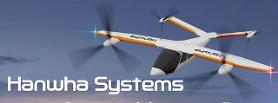
[Courtesy of Hanwha Systems]
As a frontrunner in disseminating 5G mobile services, South Korea aims to achieve the world's first commercialization of 6G mobile telecommunication in 2028. A 6G network can be commercialized only when a high-performance network on the ground and satellite communication are combined.
"The ultra-small satellite industry, which can be developed at a low cost in a short period of time, is rapidly growing, and global competition is also intensifying to dominate the space Internet market using satellite communication," Economy and Finance Minister Hong Nam-ki said at an economic meeting on June 18. "The government will actively take advantage of this opportunity to upgrade the space industry ecosystem."
Hong said the government would lead the creation of demands from markets by developing ultra-small satellites for defense and telecommunication. "We will secure satellite frequencies early in order to dominate the satellite communication market, which is a key technology of 6G services," he said, adding South Korea should lay the foundation for strengthening competitiveness in services related to urban air mobility (UAM), intelligent maritime logistics and other fields.
South Korea has disclosed the goal of producing small low-orbit satellites weighing under 100 kilograms in a space program led by the state-run Korea Aerospace Research Institute (KARI).
Hanwha Systems, a key defense contractor involved in the development of antennas in South Korea, is involved in the development of small synthetic-aperture radar (SAR) satellites. SAR mounted on a moving platform, such as an aircraft or spacecraft, uses the motion of a radar antenna over a target region to provide finer spatial resolution.
Hanwha aims to develop laser inter-satellite links (ISL), an essential technology for implementing communication services through low-orbit satellites. Low earth orbit satellite antenna provides broadband connectivity from satellites. Space Internet technology can offer high-quality wireless internet services. Hanwha Systems is a key member of UAM Team Korea, a public-private consultative body that would commercialize drone taxis in 2025.
Copyright ⓒ Aju Press All rights reserved.



View more comments